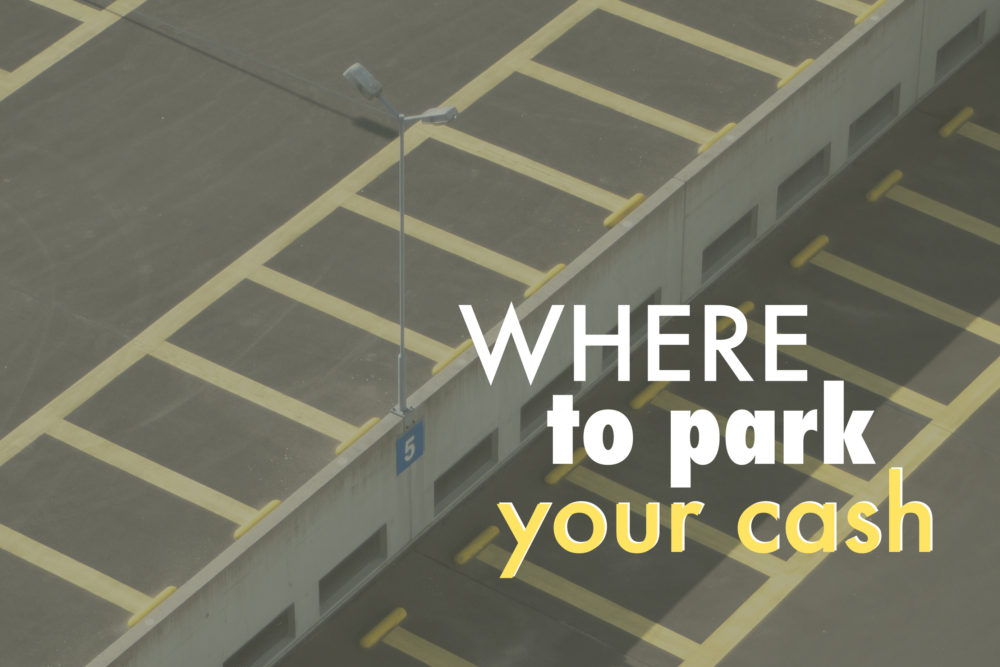Where to park your emergency fund

A recent Wall Street Journal article, “Personal-Finance Lessons From the Ultrawealthy,” surprised many with one of its key lessons from the richest investors: keep cash handy.
Many incorrectly assume that those with high net worths keep fewer assets in cash than the rest of us. In fact, most assume that’s how they got to be ultrawealthy in the first place. This is untrue. Of the group surveyed for the article, the average millionaire had 12% of their holdings in cash.
“Cash is sometimes thought of as something to be minimized — as an unproductive asset that acts as a drag on such markers as return on equity. Cash, though, is to a business as oxygen is to an individual: never thought about when it is present, the only thing in mind when it is absent.” – Warren Buffett
How Much Is Enough?
While you may be asking, “What is an adequate amount of cash?” there’s a different question that must be asked first: what is the cash for?
Is this cash your emergency reserves (also called a “rainy day fund” or “emergency fund”)? Or do you have specific purchases you want to make in the near future? Is it for opportunities that could come up (foreseen or unforeseen), and you want to be ready when they do? Answering these will be the first step in determining how much cash you should have on hand.
Traditionally, advisors recommend families have at least 3 to 6 months’ worth of expenses set aside as emergency reserves. A family who spends roughly $8,000/month, for example, should have somewhere between $24,000 and $48,000 in emergency reserves. They may use some of this for opportunities that arise, but they should avoid letting it go below the $24,000 number unless it’s for true emergencies. I often recommend this for clients, although for some I recommend an even higher amount (such as entrepreneurs and retirees).
Another reason to hold cash is upcoming major purchases. If there are transactions you expect to take place in the next 2 – 3 years and you have money set aside for these, cash is your friend. You do not want to subject this money to market fluctuations or liquidity restrictions (unless the purchase is optional). Consider the housing crisis that began in 2008; many people’s plans were dramatically altered because they were built upon the equity in their home. When that equity disappeared, so did their plans.
An opportunity fund is another reason high net worth investors often hold cash. If you are prepared for emergencies and major purchases, this cash is for unexpected opportunities such as incredibly cheap investments or assets.
Where to Park Cash
Once you’ve determined how much cash to keep on hand, the big question is where to leave it to maximize return without risk. Interest rates are so low today — is it even worth paying attention to?
The national average for savings rates in 2016 was 0.06% — basically nothing. CDs are not much better, with the national average for 5-year CDs at 0.86%. Bond funds still offer slightly higher rates, but without any guarantees that you will get back all of your original capital.
The reality right now is that most families should target about 1.0% interest for their cash reserves. Though nowhere near the 5%+ rates of past, this is a meaningful enough improvement over the average. This rate should be able to be acquired without liquidity restrictions (like those for CDs).
For instance, CrossFirst Bank is a local bank in Kansas City that offers 1.0% Money Market Accounts. They also have locations in Wichita, Dallas, Oklahoma City, and Tulsa. In addition to great rates, I’ve found their service to be exceptionally personal. Since CrossFirst has intentionally limited themselves to one physical location in each of their markets, they also have robust online banking capabilities.Those who are too far away from a local bank offering this level of interest might consider the online-only Ally Bank, whose savings account starts at 1.0% interest as well.
Keeping cash on hand, whether for emergencies or opportunities, is a sound strategy for protecting your future. Need guidance in preparing for what’s next? At Sound Stewardship, we’re here to help. Contact us to start the conversation.
< Back to Updates

